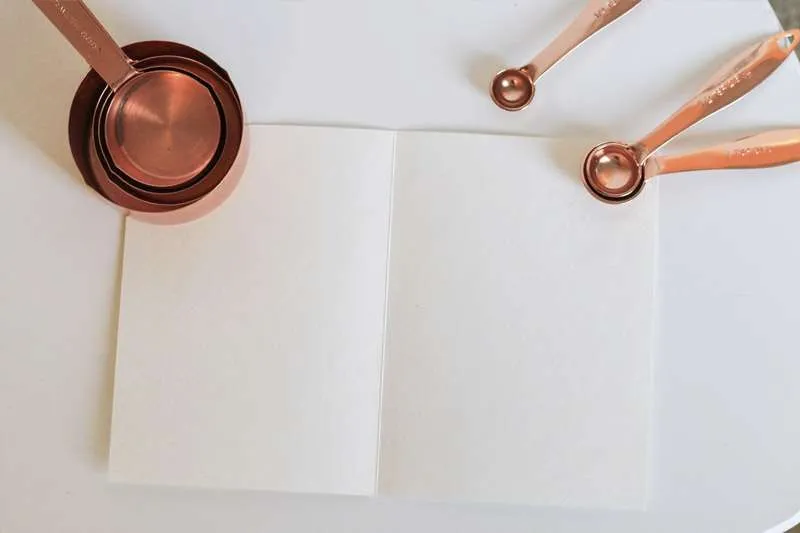In recent years, there has been an increased focus on using eco-friendly household cleaners, and vinegar has emerged as a popular natural cleaning solution. However, one question many homeowners with septic systems ask is: “Is vinegar septic safe?” In this article, we’ll explore the answer to this question and provide information about using vinegar in septic systems.
Will vinegar kill bacteria in a septic tank?
- Septic systems rely on the balance of good bacteria to break down waste.
- Vinegar is a mild acid that can kill some bacteria, but not all.
- Using vinegar in moderation is unlikely to harm the bacterial balance in your septic tank.
The primary concern with using vinegar in a septic system is its potential to kill the beneficial bacteria that break down waste. Although vinegar does have antimicrobial properties, it is a relatively weak acid. In small amounts, it’s unlikely to have a significant impact on the overall bacterial balance within your septic tank.
Is vinegar safe for septic tanks?
- Vinegar is a natural, biodegradable substance.
- Using vinegar in moderate amounts is safe for septic systems.
- Avoid using excessive amounts of vinegar, as it can disrupt the septic system’s balance.
In general, vinegar is safe for use in septic systems because it is a natural, biodegradable substance. When used in moderation, it should not cause harm to your septic system. However, excessive use of vinegar can potentially disrupt the balance of bacteria and enzymes in your septic tank. It’s essential to use vinegar sparingly to prevent any negative effects on your septic system.
Is vinegar septic safe or bad for septic systems?
- Vinegar is not inherently bad for septic systems.
- Using vinegar as a cleaning agent in moderate amounts is unlikely to cause problems.
- Excessive use of vinegar can harm your septic system’s balance.
As previously mentioned, vinegar is not inherently bad for septic systems. When used moderately, it can be an eco-friendly cleaning solution that is compatible with a septic system. However, it is crucial to avoid using large amounts of vinegar, as this could cause harm to your septic system’s balance and effectiveness.
Is it okay to put vinegar in a septic system?
- Yes, it is generally okay to put vinegar in a septic system when used in moderation.
- Avoid using large amounts of vinegar, as this could disrupt the system’s balance.
- Monitor your septic system for any signs of trouble after using vinegar.
It is generally safe to put vinegar in a septic system, provided it is used in moderation. As a natural, biodegradable substance, vinegar can be an effective cleaning solution without causing harm to your septic system. However, always be cautious about using excessive amounts and monitor your septic system for any signs of trouble after using vinegar.
What type of vinegar is best for septic tanks?
White distilled vinegar is the best choice for septic systems.
Apple cider vinegar and other types may contain sugars and other compounds that can disrupt the septic system’s balance.
White distilled vinegar is the best type of vinegar to use in a septic system. This type of vinegar is highly purified and does not contain any additional compounds that could disrupt your septic system’s balance. It’s essential to avoid using apple cider vinegar or other types of vinegar, as these may contain sugars and other substances that can harm your septic system.
What is a good recipe for adding vinegar to a septic system?

- Mix 1 part white distilled vinegar with 3 parts water.
- Add a few drops of essential oil for a pleasant scent, if desired.
- Use this solution as a natural cleaning agent in your home.
A simple and effective recipe for adding vinegar to your septic system is to mix 1 part white distilled vinegar with 3 parts water. This diluted solution can be used for various home cleaning tasks, such as countertops, sinks, and toilets.
If you’d like to add a pleasant scent to your cleaning solution, consider adding a few drops of your favorite essential oil. This diluted vinegar solution is septic-safe and can be used without causing harm to your septic system.
How do you add vinegar to a septic system?
- Use diluted vinegar for cleaning tasks around your home.
- Pour the vinegar solution down drains and toilets as you clean.
- Avoid pouring large amounts of undiluted vinegar directly into your septic system.
To add vinegar to your septic system, use the diluted vinegar solution mentioned in the previous section for various cleaning tasks in your home. As you clean, the vinegar solution will make its way down your drains and into your septic system.
It’s important to avoid pouring large amounts of undiluted vinegar directly into your septic system, as this could disrupt the balance of bacteria and enzymes necessary for proper functioning.
In conclusion, vinegar is a septic-safe cleaning solution when used in moderation. By using white distilled vinegar in a diluted form, you can enjoy an eco-friendly cleaning solution without causing harm to your septic system. Remember to always use vinegar sparingly and monitor your septic system for any signs of trouble after using vinegar.
Benefits of using vinegar in a septic system
Using vinegar in a septic system offers various benefits, making it an attractive eco-friendly alternative to harsh chemical cleaners. Unlike many commercial cleaning products, vinegar is a natural, biodegradable substance that poses minimal risk to the environment.
As a cleaning solution, vinegar is effective in removing dirt, grime, and mineral deposits without damaging your septic system’s delicate balance. Additionally, vinegar helps maintain the pH balance within the septic tank, ensuring that the beneficial bacteria can effectively break down waste. By using vinegar as a cleaning agent, you’re not only protecting your septic system but also reducing your home’s environmental impact.
Precautions when using vinegar in a septic system
While vinegar is generally safe for use in septic systems, it’s essential to exercise caution and use it in moderation. Excessive use of vinegar can disrupt the balance of bacteria and enzymes necessary for proper functioning of your septic system.
To avoid potential issues, always use a diluted vinegar solution for cleaning tasks and avoid pouring undiluted vinegar directly into your septic system. It’s also crucial to monitor your septic system for any signs of trouble after using vinegar, such as foul odors, slow draining, or sewage backups.
By taking these precautions, you can enjoy the benefits of vinegar as a cleaning solution while maintaining a healthy septic system.
Other septic-safe cleaning alternatives
In addition to vinegar, there are other natural, septic-safe cleaning agents that can be used around your home. Baking soda is a versatile cleaner that can be used to remove stains, deodorize, and even unclog drains when combined with vinegar.
Lemon juice, with its natural acidity and fresh scent, is another excellent option for cleaning various surfaces and cutting through grease. These alternatives can be used individually or in combination with vinegar to create effective, eco-friendly cleaning solutions.
By opting for septic-safe cleaning agents, you’re taking steps to protect your septic system and the environment.
Tips for maintaining a healthy septic system
- Use septic-safe cleaning solutions: Opt for eco-friendly cleaning agents like vinegar, baking soda, and lemon juice to protect your septic system’s balance.
- Conserve water: Practice water conservation to prevent overloading your septic system, such as fixing leaks, installing low-flow fixtures, and spreading out laundry loads.
- Avoid flushing non-biodegradable items: Refrain from flushing items like diapers, wipes, and feminine hygiene products, as they can clog your septic system.
- Limit garbage disposal use: Excessive use of garbage disposals can introduce too much solid waste into your septic system, which can lead to clogs or malfunctions.
- Keep heavy vehicles and equipment off the drain field: Avoid driving or parking heavy vehicles and equipment over the drain field, as this can damage the pipes and compromise the system.
- Be mindful of landscaping: Plant only grass over the drain field and maintain a safe distance between trees and the septic system to prevent root intrusion.
- Regular septic tank pumping: Schedule septic tank pumping every 3-5 years (or as needed) to remove accumulated sludge and maintain proper functioning.
- Regular septic system inspections: Inspect your septic system every 1-3 years to identify potential issues and ensure optimal performance.
- Educate household members: Make sure everyone in your home understands the importance of septic system care and follows best practices to keep it functioning effectively.
- Address issues promptly: If you notice signs of septic system problems, such as foul odors, slow draining, or sewage backups, contact a professional immediately to assess and resolve the issue.
Frequently asked questions about vinegar and septic systems
Is vinegar septic safe?
Yes, vinegar is generally safe for septic systems when used in moderation. It is a natural, biodegradable substance that can be used as an eco-friendly cleaning solution without causing harm to your septic system.
How much vinegar should I use in my septic system?
To avoid disrupting your septic system’s balance, always use a diluted vinegar solution for cleaning tasks. A good recipe is to mix 1 part white distilled vinegar with 3 parts water.
What type of vinegar is best for septic systems?
White distilled vinegar is the best choice for septic systems, as it is highly purified and does not contain additional compounds that could disrupt your septic system’s balance. Avoid using apple cider vinegar or other vinegar, as they may contain sugars and other substances that can harm your septic system.
Can I use vinegar to unclog a drain in a septic system?
Yes, vinegar can be used in combination with baking soda to unclog drains in a septic system. Pour baking soda down the drain, followed by a mixture of equal parts vinegar and hot water. This combination will create a fizzing reaction that can help clear minor clogs. However, for severe clogs, it’s best to consult a professional.
How often can I use vinegar in my septic system?
There is no specific limit on how often you can use vinegar in your septic system, but it’s crucial always to use it in moderation. Using a diluted vinegar solution for occasional cleaning tasks should not cause any harm to your septic system. However, excessive use of vinegar could disrupt the system’s balance and effectiveness.


